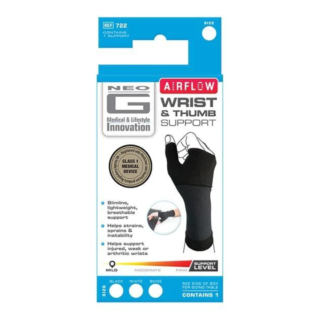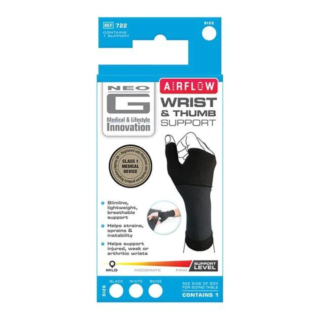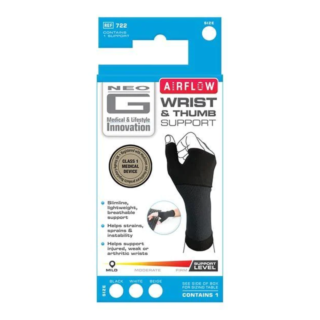Wrist Support
Whether you’re dealing with an injury or a long term condition, we have a range of wrist support bandages to help. … Read More See less
Wearing a wrist support can help sprains, strain and instability. They can also be ideal for people suffering with carpal tunnel syndrome, arthritis or general weakness in the wrists.

Free delivery when you spend over £30

100% discreet delivery for every item ordered

Fully regulated UK pharmacy
What is carpal tunnel syndrome?
Carpel tunnel syndrome is pressure on a nerve in your wrist that causes tingling, numbness and pain in your hands and fingers, as well as a weak thumb or difficulty gripping. You’re more at risk of developing carpal tunnel syndrome if you’re overweight, pregnant, do work or hobbies that mean you repeatedly bend your wrist or grip hard, have another illness like arthritis or diabetes, have an immediate family member with carpal tunnel syndrome or if you have previously injured your wrist.
How do support bandages work?
Joint supports and compression bandages are designed to apply gentle pressure to an injury.
They work by preventing fluids from gathering at the site of the injury, which in turn helps to minimise swelling and pain.
When might you need a support bandage?
Joint supports and compression bandages are typically used to prevent swelling in sprains and strains.
The most effective time to use a support bandage is in the first 24 to 48 hours after your injury.
You should also try to rest as much as you can during this time and keep your injury elevated.
Which bandages do I need in my first aid kit?
That random box of plasters you’ve got hiding in your cupboard somewhere probably isn’t going to cut it when you’ve got a nasty wound to deal with!
Plasters are, of course, a vital part of the first aid kit, but you need to make sure you’ve got a range of different shapes and sizes.
You’ll also need small, medium and large sterile gauze dressings, a triangular bandage, crêpe rolled bandages and sterile eye dressings.
What is a sprain?
Sprains and strains are common types of injury that affect your muscles and ligaments typically around your ankle, foot, wrist, thumb, knee, leg or back.
The symptoms of a strain or sprain typically include pain, tenderness, weakness, swelling and bruising.
You might not be able to put weight on the injury and you may experience muscle spasms or cramping.









